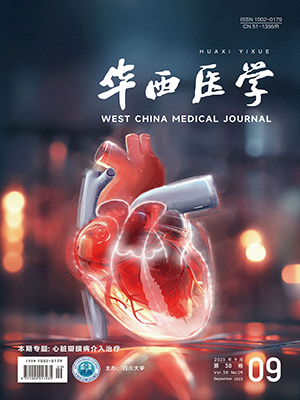目的 了解局部麻醉下腹股溝疝無張力修補術后患者排便變化的相關影響因素。 方法 采用自行設計的問卷調查表,對2010年5月-6月行無張力修補術的腹股溝疝患者術后排便情況及變化進行調查,并就相關影響因素采用logistic回歸方法進行統計分析。 結果 腹股溝疝無張力修補術后患者進食量減少、活動量減少、飲食成分變化、擔心排便引起復發是術后排便變化的影響因素。 結論 加強該病癥術后健康宣傳,指導患者正常進食、多活動,消除患者對腹股溝疝復發的焦慮,可促進其早期排便。
Objective To research on the risk factors for change of defecation after inguinal hernia mesh-repairs under local anesthesia. Methods Self-made questionnaires were used to investigate the defecation change among patients having undergone inguinal hernia mesh-repairs from May to June 2010, and the correlated factors for change of defecation were analyzed by logistic regression analysis. Results Reduction of activity and food, changes of food ingredients, and worries about recurrence were risk factors for change of defecation. Conclusion In order to facilitate the recovery of the patients, nurses should promote patients’ knowledge on the surgery, guide them to eat as usual and do more exercises, and eliminate their anxiety on recurrence of the disease.
引用本文: 陸安清,李卡,李克書,雷文章. 腹股溝疝無張力修補術后排便變化相關因素分析. 華西醫學, 2012, 27(1): 94-96. doi: CNKI: 51-1356/R.20120115.1552.024 復制




